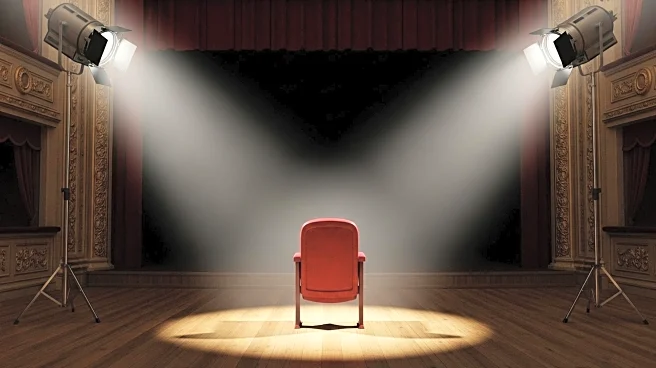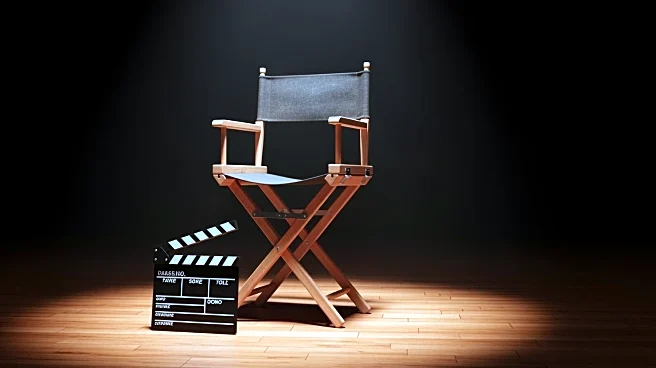What's Happening?
The Screen Actors Guild–American Federation of Television and Radio Artists (SAG-AFTRA) has issued a strong statement against the use of Tilly Norwood, an AI-generated 'actress' created by Eline Van der Velden of Particle 6 Productions. Tilly Norwood has been promoted as a potential new star in Hollywood, sparking significant backlash from the entertainment community. SAG-AFTRA's statement emphasizes that Tilly Norwood is not a real actor but a computer-generated character trained on the work of professional performers without their consent. The union warns that using such synthetic performers without adhering to contractual obligations could jeopardize the livelihoods of human actors and devalue human artistry.
Why It's Important?
The emergence of AI-generated characters like Tilly Norwood raises significant concerns within the entertainment industry about the future of human performers. SAG-AFTRA's opposition highlights the potential threat to jobs and the artistic value of human creativity. The use of AI in this context could lead to a reduction in opportunities for actors, as producers might opt for synthetic alternatives that do not require salaries or benefits. This development could also set a precedent for other industries, where AI might replace human roles, leading to broader economic and social implications.
What's Next?
SAG-AFTRA has made it clear that producers must comply with existing contractual obligations when considering the use of synthetic performers. The union's stance may lead to further discussions and potential legal actions to protect the interests of human actors. The entertainment industry might see increased advocacy for regulations governing the use of AI in creative roles. Additionally, the controversy surrounding Tilly Norwood could prompt other unions and industry stakeholders to take similar positions, potentially influencing future policy decisions.
Beyond the Headlines
The controversy over Tilly Norwood also touches on ethical and cultural dimensions, such as the unauthorized use of performers' likenesses and the broader implications of AI in creative fields. The debate may lead to a reevaluation of intellectual property rights and the ethical considerations of using AI in art and entertainment. This situation could also spark a cultural conversation about the value of human experience and emotion in storytelling, challenging the notion of what constitutes genuine artistic expression.










